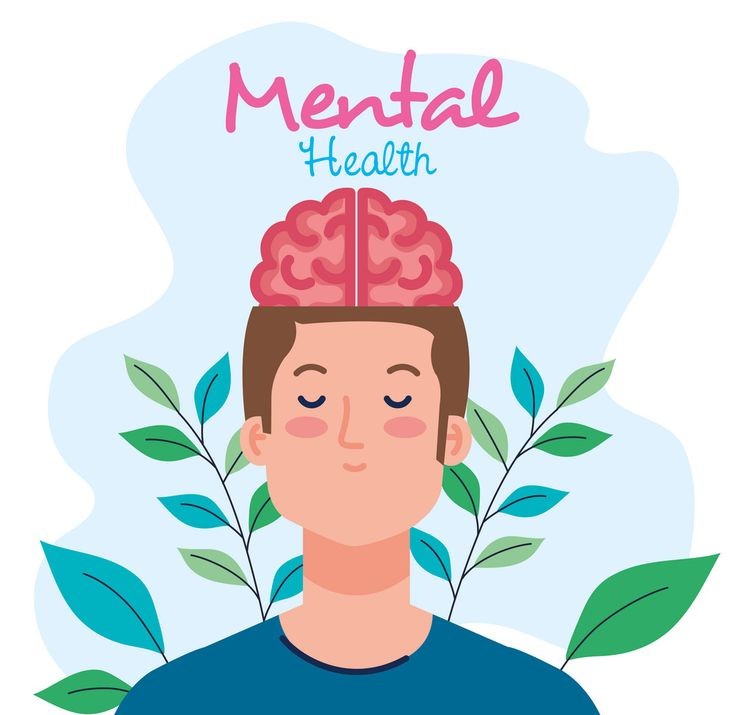
I googled mental health and got this definition- Mental health refers to cognitive, behavioral, and emotional well-being. It is all about how people think, feel, and behave. People sometimes use the term “mental health” to mean the absence of a mental disorder. Mental health can affect daily living, relationships, and physical health
As a financial services professional, I didn’t have any insights on this till I heard that my friend from school had ended his life by suicide. Like most people I asked the normal whys and what happened kind of questions and as I heard small updates about his life, I understood that it was a combination of failure at his studies, a personal relationship that had gone wrong and perhaps so many other factors that none of us knew anything about. I wasn’t close to him at school, and yet I found myself trying to think about what he may have been feeling in the last few minutes of his life. Did he feel all alone, like nobody cared? Had he tried to talk about his desperate thoughts? Was he in despair, or perhaps depressed?
I reflected on dark times in my life and started thinking what had helped me then. That silent empathetic person, the talkative friend who spoke for both of us until I found words again, the hugs of my children. Meaningful contact with well meaning people. Did my friend lack any of these? Had he spoken to one person, would that have potentially helped him? I couldn’t help him, but this led me to reach out to suicide intervention centres, to offer my time. This began a journey that I am still on. In this journey, there is a lot to learn, and I have also done diploma courses in counselling and Cognitive Behavior Therapy since then. I underwent comprehensive training and started offering emotional support to troubled people via the platform of helplines. I have volunteered with 3 different helplines and have been enriched by the extensive training that each center offers. Currently I volunteer at Samaritans Mumbai. Like most volunteers, my focus remains on emotional well -being. When we look at the definition, mental health can affect daily living, relationships, and physical health.
Imagine a balloon that is getting inflated, and continues until it explodes. If you intervene, and allow it to deflate in small parts, you can postpone or even save the balloon from exploding. This metaphor can be applied to mental stress, and mental pressure. The continuous build-up of various factors expands this balloon until the last almost insignificant factor, or last blow into this balloon, can cause it to explode.
In this metaphor, the balloon is the person’s mental stress, and the intervention is empathetic listening. We often wonder how something so small could have caused this person to break down, but when we start exploring further, we realise this was a final culmination of prolonged pain this person was in. By allowing the person to talk about the various stresses they are bowed down with, we are enabling and allowing the balloon to deflate a little. In other words, talking and listening can save lives.
Conversations around stress, distress, despair and even thoughts of self-harm and suicide are seldom had. The instinctive reflex is to divert, distract or change the topic. When I first came in touch with the idea of actually talking about and staying with the intensity of distressed or troubled feelings, I was blown away. My need to comfort and offer solutions had to be checked. This was my first experience of opening myself up to seeing, recognizing, and accepting pain. We may never be able to change it but staying in that space and talking is a start. This calls for training and a conscious awareness of how vulnerable the person may feel. Training includes specific tools in active listening, mindfulness, awareness about ourselves, and most importantly, training to accept without judging. This is the difference between empathetic listening and dismissive listening.
Taking care of mental health is not the same as handling mental illnesses or mood or mental disorders. There are psychiatrists as well as professionally trained therapists who can look into medication, and cognitive and behavioural well-being as this may call for techniques and skills that a professional can bring in. In all cases, a little empathy and acceptance can go a long way to help the person deal with what they are going through. The heart of such support lies in respect. Respect for the other person when we listen, respect when they expose their weaknesses and vulnerabilities, respect that they can – with some help and support – find a way to live their lives.
This help can mean medication. I have spoken openly to many people about this, and have come up against the prejudice almost every time. Emotional needs and distress is viewed as weakness, and the very thought that professional help may be needed is often rejected. Anybody who has finally reached out to professionals has probably waited for the balloon to get inflated till breaking point, and they wonder why it doesn’t work or takes so long to work.
Welcome to the stigma around mental health. Instead of encouraging opening up, we actively support closing down. Empirically, we have seen many examples of people who handle mental illnesses and are effective and functional in every area of life. Yet, when it comes to everyday life, we spend most of our energy in avoidance. Medication for any mental illness, or mental distress is greeted with dismay and fear. My observation is that medication for physical ailments such as thyroid, BP, or diabetes, do not carry the accompanying stigma that surrounds mental health.
Until we acknowledge and accept our own prejudices, we will only be forwarding and re forwarding positive images and positive tropes that insist that a good bout of exercise and yoga can fix anything. Maybe it can, but for a person who is carrying the burden of guilt and shame about the intense despair they are feeling, such positivism can almost be toxic. I have understood through my 8 years of work in this space, and life in general, that listening does help.
I have understood this from my own life as well, where talking helped. Showing some compassion, and empathy can help someone feel a little lighter, and maybe even save lives. Young people bear the burden of expectation and are facing a world where everything is changing rapidly. Many a time their world view is being formed by a small-screen and byte sized information. The pressure to perform is so high that it is impacting the time and space which was a luxury we had where we could read, think, and not worry about the world exploding. This pressure often turns inward with growing feelings of not belonging, pain and worthlessness. Self-harm is often a way to cope, which unfortunately gets accompanied by feelings of guilt and shame, over and above the overwhelming isolation.
Emotional support and listening can help with the isolation, and acceptance can help with feelings of worthlessness and the accompanying guilt and shame. While self-harm doesn’t always mean the person is suicidal, there is an increased risk and correlation. This cry for help is unfortunately termed attention seeking, as are most emotional outbursts or even withdrawal. The stigma is so high that seeking help is often interpreted as unworthiness. Under seemingly perfect families lie masked pain and agony that builds up over time. A great start to address this is by having sensitive, respectful and mindful conversations. Discarding toxic jokes, changing the tonality that implies prejudice and stigma, and actually walking the talk. By having these conversations.
In my work, I have seen several times that a person just felt better because they were emotionally accepted and cared for. Because suicide isn’t a fixed notion, but is often the last blow into the balloon, it is possible that emotional support can save lives. And talking empathetically at the lower spectrum of pain means that the balloon isn’t reaching the exploding point. Through my work with Samaritans Mumbai, I have addressed many groups of students at schools and colleges and have found an amazing openness to talk about mental health and depression. I found a lot more older people who are closed off and prefer to live in denial that these are real, and not imagined. When a young person trusts you enough to roll up their sleeves and show the physical sign of the mental pain, you know that you have connected and earned trust. Staying with the person to let them share their pain, while taking care of your own triggers are skills that can be learned, and worked upon.
I have had many heart-warming instances where elders have taken me aside at functions to open up about that family member who is mentally ill, or in pain. They have then demonstrated that when confronted with the reality, they can adapt and become open to accepting and helping people in need. I have also seen my friends recoil when I suggest they let their children know about our helpline, and that they can reach out. I continue talking about mental health, because my hope is that one small crack in prejudice can actually transform the care that a person can get.
Open your mind, read up, the statistics is all there at the tap of a button. Educate yourself, and most importantly, be kind. A little compassion, a little empathy and a little acceptance can go a long way. After all, mental health can affect daily living, relationships, and physical health. And normalising the conversations around this can be a good start towards this.
Sunitha Ramachandran
The author is the Co founder of Ankahee Helpline. She has over a decade of experience in volunteering with hotlines across Delhi, Chennai, Mumbai and Singapore.
If you, or anyone you know needs emotional support, please reach out to Ankahee Helpline 86554 86966, open all days 4pm-10pm. You can also email hello@ankaheehelpline.org for confidential support.

